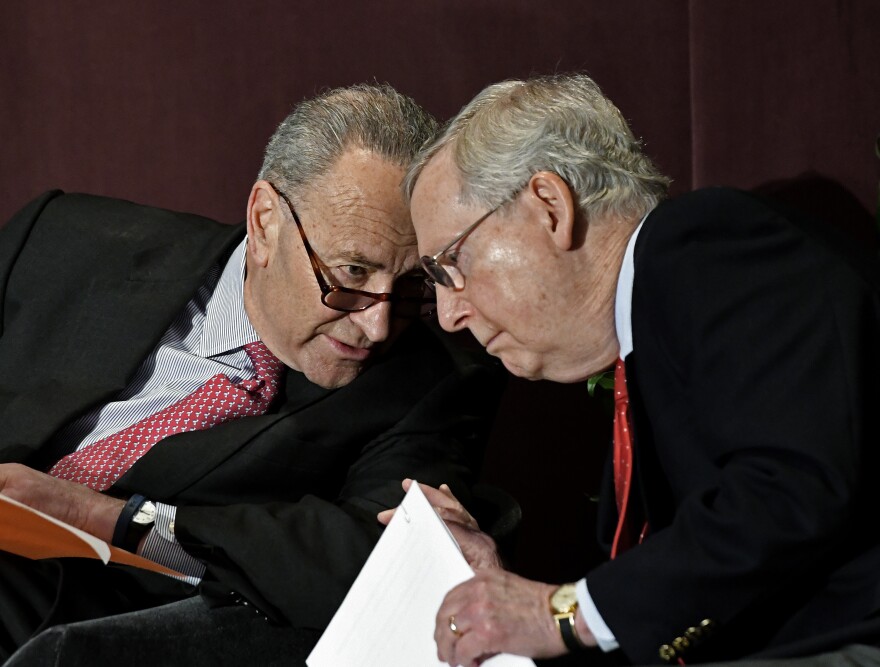Senators voted Tuesday to maintain the status quo in their respective party leadership teams. Senate Majority Leader Mitch McConnell, R-Ky., will continue to lead Republicans, and Senate Minority Leader Chuck Schumer, D-N.Y., will lead Democrats.
There were no leadership challenges to any senator in either party, but both the Republican and Senate campaign operations will have new leaders for the 2022 midterm elections. Florida Sen. Rick Scott will take over the National Republican Senatorial Committee. Democrats will determine their chair at a later date, according to a Democratic aide. The current chair, Nevada Sen. Catherine Cortez Masto, will take on a new role as the party's vice chair of outreach.
For Republicans, South Dakota Sen. John Thune remains majority whip, Wyoming Sen. John Barasso is the conference chair, Iowa Sen. Joni Ernst is the vice conference chair, and Missouri Sen. Roy Blunt is Policy Committee chair.
For Democrats, Illinois Sen. Dick Durbin remains minority whip, Washington Sen. Patty Murry is assistant Democratic leader, and Michigan Sen. Debbie Stabenow is Policy and Communications Committee chair.
Final control of the Senate will remain in limbo until after two Jan. 5 special elections take place in Georgia. Currently, McConnell is projected to have 50 seats, and Democrats 48 seats (2 independents caucus with the Democrats). If the two GOP-held seats were to flip, Democrats would take the majority because in a 50-50 Senate, the vice president breaks the tie. Republicans are favored in both elections, and the party has a long and winning track record in special elections in the state.
The House will hold their leadership elections next week. Likewise, Speaker Nancy Pelosi and Minority Leader Kevin McCarthy are expected to be reelected to their posts.
Copyright 2021 NPR. To see more, visit https://www.npr.org. 9(MDAxNzg0MDExMDEyMTYyMjc1MDE3NGVmMw004))








